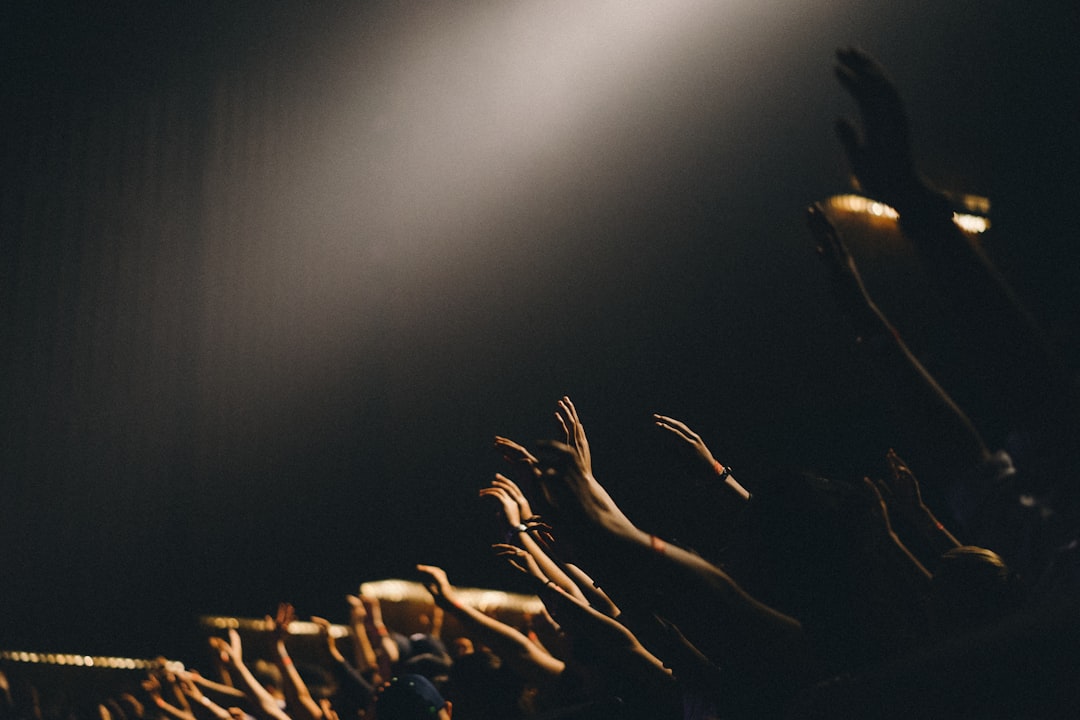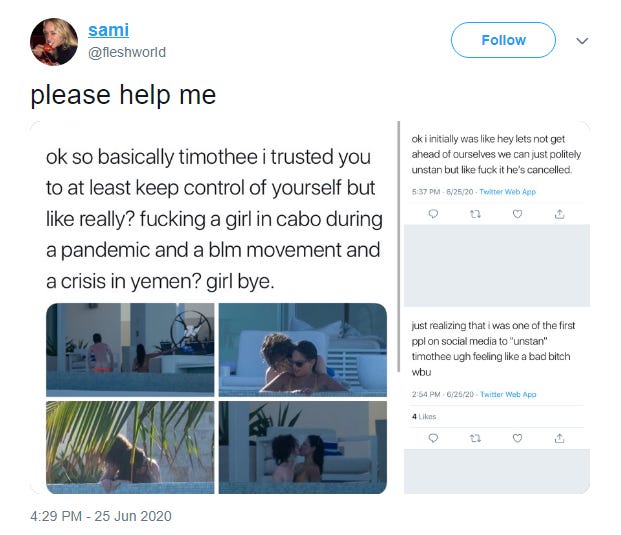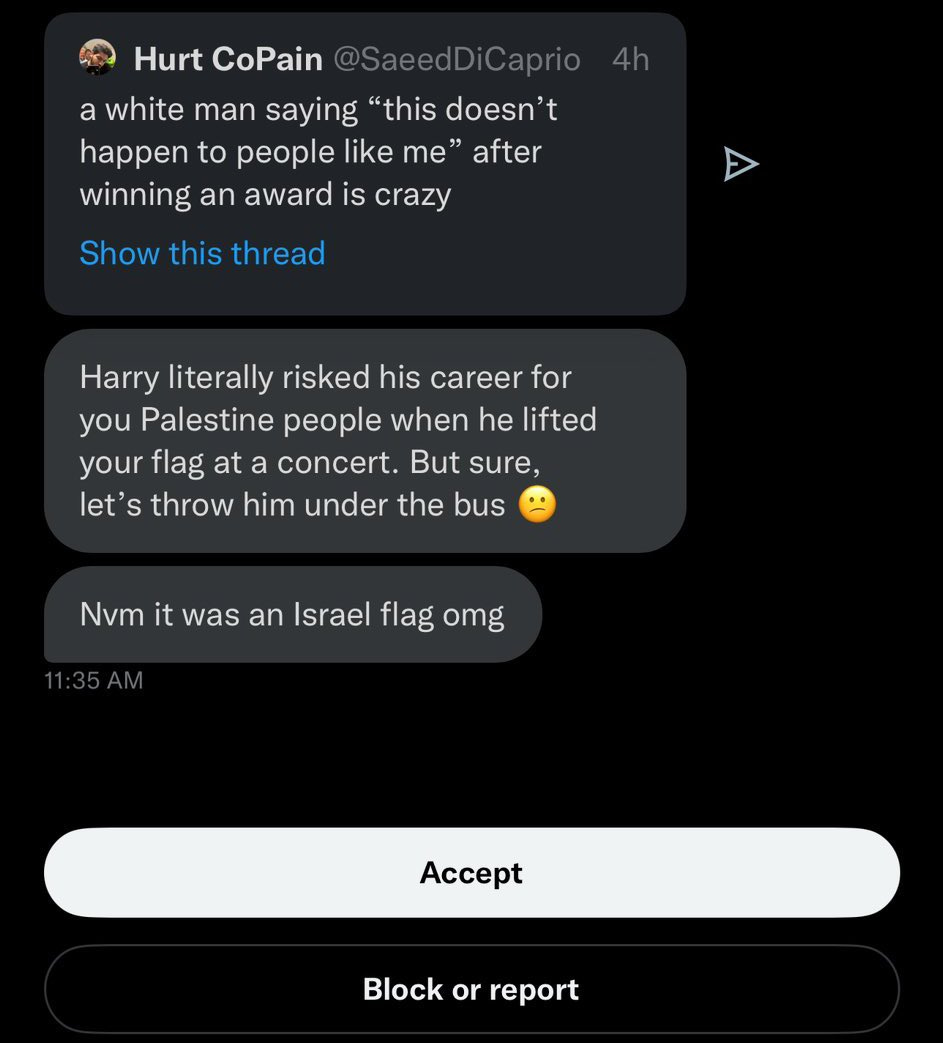Exiled Fan
Are we back? Here's a long conversation with reseacher/essayist Monia Ali about the nature of fandom, and it's a LOT.
Monia Ali describes herself as a “Fandom cult reject, using my powers of research and fixation on fandom and music industry to look at the ecosystem of fandom and industry”. She writes great essays on Substack under the banner Exiled Fan. There’s a lot of work you can catch up with, so consider the following conversation as an entry point.
Topics include: “the spread of radical conspiratorial thinking in pop fandom”, analyzing media as a self-described "fandom reject", the moment in time when One Direction fandom created a billion rabbit holes one could get lost in, fandom as a petri dish for Internet-fueled pathologies such as pseudo-cide and Munchausen by Internet, the collective push towards thinking of yourself as a STAN, the prevalent attitude towards “toxic fandom”, and the multiple, unhinged moments in time an online community became 100% convinced a prolific poster actually was a global celebrity incognito. Because THAT HAPPENED.
Let’s go.

I recall a time in fandom at large when the done thing was “keep fannish stuff away from the talent”. Showing fanfiction or fanart to a creator was considered a faux pas that made the entire fandom look creepy and pushy. Then, there was a big rush to get validated, anything goes; but there was also a long season of TV talk shows trying to get laughs by making (say) an actor read smutty fan-fic about the characters they played. This is a random Graham Norton clip:
Have you managed to pinpoint a moment when the balance shattered and “norms” were a thing of the past ?
From what I experienced it seems like the dams broke around emo bandom times, early to mid oughts-- not entirely because of the fandom itself but because of it coinciding with reduced hurdles to access fannish content. Normally you’d have to jump through hoops and be taught the communal Rules, so to speak, including “maintain the 4th wall” but with a flood of newbies brought on by big promo-pushes it became impossible to maintain. I was on Livejournal at this time, and it’s also when fan objects--performers themselves--were on LJ and would encounter and comment on fannish content themselves.
Something I only found out later was that in the early forum days, late 90s, the 4th wall was already being purposefully crossed by industry themselves, seeking out fan opinions and attempting early fandom management.
It’s partially why I decided to become active in the “fandom analysis” space--because it didn’t matter if we didn’t want to cross streams with the “real world”-- it was coming for us anyway.
You've been there for a starkly conspiratorial turn in online fandom. You've addressed it in the essay When fandom becomes cultic: the One Direction experience.
The average “excess fandom” trifecta to me would look something like this:
- things are not what they seem;
- an essential truth is being kept from the fans;
- evil management is to blame.
From the outside, “strong belief some people are in a secret relationship” is a fandom evergreen (“Supernatural”); the One Direction shift to me was adding, “... and the truth is juuust about to be revealed”. This is a cultic dynamic, complete with powerful yet beatable enemies and shifting timelines for the prophecy to come true. Have you noticed this kind of radical conspiratorial thinking in other fandoms?
Absolutely, it's incredibly common! While 1D was my first experience, when it comes to "secret relationships on the verge of coming out" it seems that the modern phenomenon and term "tinhat" originated in Lord of the Rings RPS: DomLijah (Dominic Monaghan and Elijah Wood) were the big pairing in that case. Addressed by Wood in 2003, mentioning New Line as a big bad specifically. There is a big difference in how the 1D machine used ships to continue to engage fans vs. how Lord of the Rings did, which I think has amplified the reach of those theories, and in some cases entrenched belief in their validity.
There are glimpses from other fandoms on how they keep shippers on the hook as well, a recent discovery of mine was that Supernatural's Misha Collins was told not to clarify that he was straight (he still did). The only reason for that is that it benefited the bottom line to keep things vague. (Perhaps this is why those who deny same sex relationships are branded homophobic: it's a great way to stop them from doing that.) This was also considered a conspiracy before it was confirmed. (Here’s a video where Collins discussed this.)
I've also noticed a shift from gay relationships to any relationship-- there are Gillian Anderson/David Duchovny truthers, as well as Sam Heughan/Caitriona Balfe from Outlander. There have been cases of closeting and secret relationships in entertainment history, but the concealment of straight relationships is a new conspiracy.
And occasionally they are right, which is what fascinates me the most because it becomes nearly impossible to talk about, eg, Dan and Phil, who addressed the difficulty of having speculation about them out there, or the previously mentioned Collins/Supernatural conspiracy. The Twilight conspiracy also falls under this rubric because of how it's evolved: it went from a conspiracy that Kristen Stewart was gay to actually she and Rob Pattinson are secretly married and have children together, but must pretend they are apart. That one to me really illustrated how strongly ones beliefs can be embedded, it's those who couldn't accept the Pattinson/Stewart official break up that held fast to the fantasy that they remained together. They went from being in the right, the ones telling people to stop speculating about Stewart's sexuality, to being the ones who are told to back off. It's one of the cases I try to remember when I get particularly frustrated at truthers in general. So much of it comes from our internal thought processes and subjective felt knowledge, it needs to be addressed as such. A reminder to myself on how I want to deconstruct fan psychology/sociology.
How removed do you feel from those dynamics, now that you've been busy writing and analyzing media as a self-described "fandom reject"? I was struck by your description of how messy things got in the One Direction fandom: it looks like a true rabbit hole, and we know those can be tough to get out of. So, on a personal level, I'm curious to know how you got to a point where you had a cool head on your shoulders (again) - your writing is clear, that's a solid indicator you're in a better place for sure.
To be honest, it took me a few to realize that the problem was bigger than me - partially from discovering the in-fandom manipulation and levels of illegal activity "for the cause" - that was a big wake up call and somewhat of a relief to know that the climate I was in had been primed before I ever entered it. It's only then I was able to think about my experience as cultic in any sense and could contextualize the reactions I received for "stepping out of line" -reactions that still exist today! Getting angry anti-fans yelling at me still, 6 years later!
I think Janja Lalich's shelf analogy has been an excellent illustration as well, and it works for any type of flawed belief system. The idea is that when you are in a cultic environment you will still encounter things that make no sense and don't jive with what you "know" and you can ignore it by putting it on a shelf. Over time, the shelf collects more and more things and eventually it will collapse, leaving you with a mess that recontextualizes what you believe. Suddenly it all does make sense, but it's not a relief.
I feel that earlier fandom was a petri dish for otherwise random Internet-fueled pathologies. Pseudo-cide, Munchausen by Internet – only a few of those cases could be tracked down to a clear intent to profit from donations (“help Jessie with medical expenses!”) rather, a sense of perceived closeness within a community created the circumstances for someone to want more attention and to find a path to attention in “pretending tragedy had struck”. (Car crashes, rapid-onset terminal diseases, constant abuse.) At THIS point it all looks like a relic from the past, but it still happens frequently enough. Was online fandom a canary in the Generally Online coal mine? Were there any traits that made fan communities vulnerable to this weirdness?
I absolutely consider fandom a canary of sorts, because it allowed for incredibly tight knit communities to develop behind “closed doors” that also allowed for reinvention and different status symbols to develop that vary greatly depending on the fandom community itself. They have a hierarchy of their own; for example, slash communities would have “gay couples” that educated the largely female audience about what Gay Sex and Romance was *really* like. I know of two instances where it was revealed these well respected fandom participants were actually just one person.
This is also when wank communities started to explode and quickly started to incorporate “fandom discourse” to point and laugh at. Entirely separate communities formed around the mocking and demeaning of fandom, which lead to even more nonsense and typical online trolling we’ve now gotten accustomed to.
As a veteran gossip skimmer, “secret affair” has been a standard trope since blind items existed: “secret past or present in sex work” wasn't always this common of a rumor, but it was there; what's been sort of new are the allegations of complicity in child abuse and human trafficking. After 2014-ish there's been a push towards increasingly morbid speculation. (To the point it was almost easier to imagine “Armie Hammer murdered someone” rather than thinking “this guy liked BSDM and he got careless since he was famous and bored”.) Is it all a matter of audience capture? Can some of this count as highly motivated anti-fandom at play?
Absolutely, audience capture and anti-fandom go hand in hand with this. Anti-fandom is essential to understanding the fandom climate because it’s simply the flipside of the stan--and sometimes exists within the stan, cultivated by the community. A fan object (or hate object, I guess) saying they aren't secretely in a same sex relationship or gay means they are actually homophobic. Mentions of drinking or weed means they are addicts and fans are enablers. Even not doing something can be wielded as a weapon and put fans on the receiving end of abuse--that's something else that's often overlooked. Stan/anti-fan abuse targets the fan object and their periphery, but it also targets their fans. It's partially why I think there has been such an increase in fans demanding that their fan object "take a stance" -- because they know they will receive harassment based on perceived faux pas of their fave.
You mention Armie Hammer, but did you know Timothee Chalamet fans have had moments of rage themselves over even smaller matters? The viral tweet about him "having sex in Cabo during a pandemic and a crisis in Yemen" has become a meme because of how ludicrously unhinged it comes off. It also reveals how shallow the concept of stans being social justice warriors (or whatever else you want to call them) because they only care about issues when they make their fan object look bad.
Harry Styles fans were upset that he was papped during the pandemic with Olivia Wilde, but they didn't care that he was selling COVID-19 merch. Swifties were angry about overpriced platinum tickets but celebrated record breaking tour gross reports. Standom is where cognitive dissonance and rationalized hypocrisy thrives.
Observation here: the worst thing anyone with a platform can do IS "take a stance" in a quick, careless manner, like jumping on a broad issue being unprepared about it - the "take a stance" demand you just mentioned is something that can be done after reliable, updated information has been collected, if only to maximise one's impact as an advocate. And for this to happen, there needs to be minimal cool-off time and some preparation. If this doesn't happen, you get the random celeb tweets about a BIG ISSUE that do very little to push the issue forward. Still, I get the impression contemporary online fandom is all about instant gratification. Am I off base here?
I think you're on point exactly. I think the fandom suffers from what I call the "perpetual now" where the present is what matters the most--I tend to think of it as a side effect of our online culture but I also wonder how much of this demand for instant responses is related to the media cycle that we've all grown used to. Fans know that without an immediate response there is little chance of the stance/correction/apology reaching the people it needs to. Once something hits the syndicated news cycle any course correction will be lagging behind, another responsibility on the shoulders of fans needing to inform people of "what really is/happened" etc.
I also think part of the eagerness for callouts is a leftover from the "Your Fave is Problematic" days--it popularized the idea that fans are responsible to let others know what's wrong and how to rectify it--calling out fellow fans but also celebrities themselves. YFIP dates back a decade though, and now all stances or faux pas are simply weapons to be wielded in the name of X. Here’s one of my recent favourites, mostly because they had to backtrack.
You addressed the concept of "Customer Evangelists" in your own critical work. The biggest shift I can remember happened in the Justin Bieber age of pop / YouTube stardom: an integral part of the strategy was mobilizing Bieber's fans to let them think his success was something they owned, the singer being “their creation”; as a result, the fans were turned into like/share machines. These tactics right now are openly encouraged – you can't just grow an audience; you need to think about anything you make as a K-Pop event, you need to turn your audience into an ARMY of STANS. (As you noted the term “stan” itself has gone from derogatory to proud signifier of one's hyper-fixation.) My question here would be: are the marketing consultants who boast about these strategies aaaanywhere near awareness of the fact the human "fans" are turned into pure product themselves?
They seem to be aware of it in very abstract terms. As if selling indulgences; it’s what they want! We’re fullfilling their needs (that we created) -- why shouldn’t we give them what they want?
This is also why I get so frustrated when media at large decides to say stans/fans have gone “too far” -- they aren’t aware of how intentional the push was to get people “that far,” as if it wasn’t a profit driven motive turning up the heat until it boiled over. Like the McDonald’s hot coffee case, it’s easier to blame the fans who have been hurt, saying they should know better, than to actually look at what is being delivered and whether it can even be safely consumed.
That’s the first analogy that comes to mind for me, with scalding beverages intentionally sold only for those who got burned being ridiculed when that was a direct result of the beverage temperature ….
[I’ve got to ask, but it’s very silly, so feel free to skip it if it's not for you or beneath you:] Have you ever been aware of any moment in time an online community became convinced a prolific poster actually was a global celebrity incognito? I've got: a) Bruce Willis as secret Ain't It Cool News poster, and b) Robert Downey Jr. as secret Crazy Days and Nights commenter.
This is not at all beneath me and actually a great question! I have not experienced any conspiracies of the sort when it comes to public accounts being celebrities themselves, but there has been tons of speculation that certain accounts or anons are “industry plants” or that anonymous messages were being sent from band members or people close to the band wanting to “warn” fans about what was going to happen.
There’s also the Rainbow Bondage Bears that were present for the last year of 1D’s existence; this was aimed at fandom itself, from their own appearances to the Twitter account for them; this was attributed to band members in some corners and techs in other corners. Actual fights would erupt between fandom factions arguing about it. (It remains one of the more controversial attempts at fandom management to me as it breached all ethics regardless of who was behind it, in my view.)
Back in the bandom days there was also Pete Wentz’ blogs which were tracked down by fans-- I don’t know how they determined that they were his but judging from the cycle of blog posts -> lyrics it seemed like a genuine easter egg Wentz put out there for the fans. The blogs predated their mainstream crossover and faded out of existence once a second generation of fans joined.
If you enjoyed this conversation, I strongly encourage you to read up on Monia’s work at Exiled Fan.
You might also enjoy:





